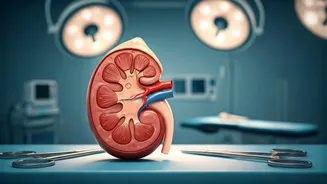Hydration: The Foundation
Staying sufficiently hydrated is the cornerstone of kidney health. The kidneys require an adequate supply of water to effectively filter waste products
and toxins from the blood. Insufficient water intake can cause a build-up of these harmful substances, which can lead to kidney damage and various complications. Regular consumption of water aids in maintaining the appropriate balance of fluids, electrolytes, and other essential nutrients within the body. It also prevents the formation of kidney stones and supports the overall functioning of the kidneys. Therefore, making sure to consume ample water on a daily basis is a fundamental step in promoting and preserving kidney wellness.
Healthy Dietary Habits
A balanced and nutritious diet plays a crucial role in maintaining healthy kidneys. Limiting the intake of sodium, saturated fats, and processed foods is paramount, as these can put undue stress on the kidneys. It's important to choose whole foods, such as fresh fruits, vegetables, and lean proteins, which help provide the essential nutrients the body needs while minimizing the strain on the kidneys. Furthermore, controlling the intake of phosphorus and potassium, common in many foods, can be helpful for those with kidney issues. Following a kidney-friendly diet, usually tailored by a healthcare professional, supports optimal kidney function and reduces the risk of kidney disease progression.
Control Blood Pressure
Keeping blood pressure under control is essential for preventing kidney damage. High blood pressure can injure the delicate blood vessels in the kidneys, which can impair their filtering function. Regular monitoring of blood pressure, either through home devices or healthcare professional visits, is vital for early detection of any abnormalities. If blood pressure readings are consistently high, seeking medical advice is crucial. Treatments such as medication, lifestyle adjustments, and dietary changes can help in managing blood pressure and consequently, protect the kidneys from harm. It's a proactive approach to kidney health, safeguarding against future complications.
Manage Blood Sugar
For individuals with diabetes, managing blood sugar levels is a critical factor in safeguarding kidney health. Prolonged high blood sugar can damage the blood vessels in the kidneys, leading to diabetic nephropathy, a leading cause of kidney failure. Regular monitoring of blood sugar levels is vital, and adhering to the prescribed treatments, including medications, diet, and exercise, can greatly help in preventing or delaying the onset of kidney complications. Consulting with a healthcare provider to establish a personalized management plan is crucial. Maintaining blood sugar within a normal range is a preventative measure, ensuring the long-term health and functionality of the kidneys.
Limit Alcohol, Avoid Smoking
Both excessive alcohol consumption and smoking can negatively impact kidney function. Alcohol can elevate blood pressure and disrupt the balance of fluids in the body, placing extra stress on the kidneys. Similarly, smoking can damage blood vessels, reducing blood flow to the kidneys and compromising their ability to function correctly. Quitting smoking and moderating or avoiding alcohol altogether are beneficial actions. Making these lifestyle changes helps minimize the burden on the kidneys and reduces the risk of developing kidney-related illnesses. These are powerful steps towards achieving better overall health and kidney wellness.




















